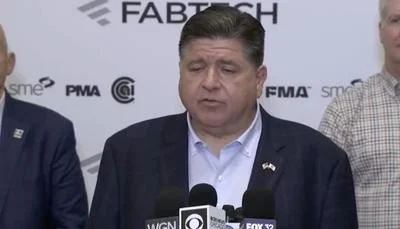Sameer Vohra, MD, JD, MA Director at Illinois Department of Public Health | Official website
Sameer Vohra, MD, JD, MA Director at Illinois Department of Public Health | Official website
The Illinois Department of Public Health (IDPH) and other state agencies are providing resources to assist the City of Chicago and Cook County in addressing a measles outbreak at a city shelter for new arrivals. Under Governor JB Pritzker's direction, IDPH, the Illinois Department of Human Services (DHS), and the Illinois Emergency Management Agency (IEMA) are working to support local health departments as they manage eight reported cases.
This outbreak coincides with reports from the CDC indicating measles cases in 17 states. Dr. Sameer Vohra, IDPH Director, stated that the department is coordinating assistance for local partners amid this national increase in measles cases. "While the vast majority of Chicago and Cook County residents are vaccinated for measles and not at risk, we strongly support the call from the Chicago Department of Public Health for all unvaccinated residents to get the measles/mumps/rubella (MMR) vaccine now," said Dr. Vohra.
CDPH Commissioner Olusimbo ‘Simbo’ Ige emphasized that while new cases emerge daily, most Chicagoans are vaccinated against measles. "But those who are unvaccinated need to take precautions and if they’re exposed, quarantine immediately and connect with your healthcare provider," she advised.
Dr. LaMar Hasbrouck from CCDPH highlighted that nearly 100 people might have been exposed despite current cases being confined to Chicago. He encouraged everyone to check their vaccination records.
IDPH is collaborating closely with CDPH on various fronts including testing, isolation solutions, vaccination record identification, and onsite medical support at shelters. An Epidemiologic Assistance Team from CDC's Epidemic Intelligence Service has also been dispatched.
Vaccination remains crucial as most Chicago residents were immunized during childhood; however, concerns remain about unvaccinated individuals, especially children. The MMR vaccine is widely available at clinics and pharmacies across Illinois.
Measles symptoms include rash, high fever, cough, runny nose, and red eyes appearing seven to 21 days post-exposure. Those developing symptoms should contact healthcare providers before visiting medical facilities to prevent further exposure.
Given its high contagion level through airborne transmission or contact with infected mucus or saliva, measles can lead to serious complications like pneumonia or encephalitis.
IDPH urges families to ensure vaccinations are up-to-date due to declining rates since COVID-19 increased susceptibility to preventable diseases.
For more information on measles prevention and care options visit IDPH or CDC websites.






 Alerts Sign-up
Alerts Sign-up